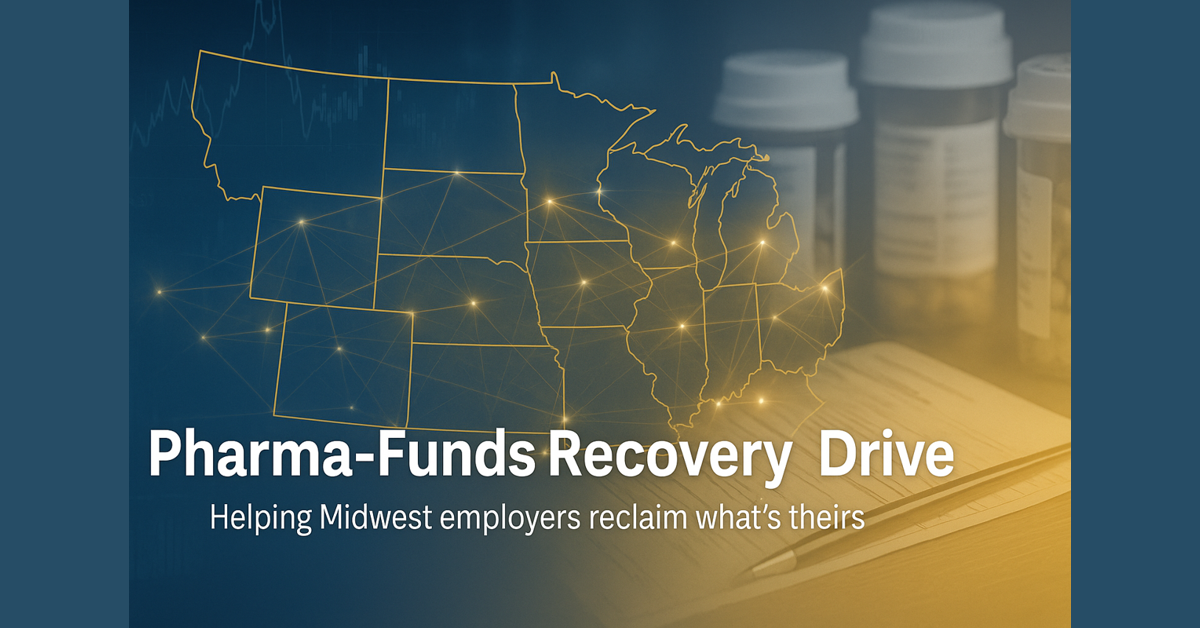Midwest Employers Urged to Claim Billions in Pharma Overcharge Reimbursements

Summary
Full Article
Superior Insurance Advisors has initiated a Midwest-wide Employer Pharma-Funds Recovery Drive to assist employers, municipalities, and benefit trusts in claiming reimbursement from the Department of Justice's $600 billion Pharma Overcharge Recovery Fund. The program, led by fiduciary-certified healthcare advisor Paul H. Flowers Jr., addresses systematic overpricing by pharmaceutical manufacturers and pharmacy benefit managers that has burdened employer health plans for more than a decade.
The recovery effort stems from consolidated lawsuits including Insulin Pricing Litigation that allege major pharmaceutical companies and PBMs such as Prime Therapeutics (Blue Cross), Optum (United Healthcare), CVS Caremark (Aetna), and Express Scripts (Cigna) artificially inflated drug prices through collusion and misaligned incentives. Flowers emphasized the urgency for employers to act, stating that those who fail to submit claims risk leaving millions of dollars unclaimed.
Critical deadlines are rapidly approaching, with generic medication claims due by November 15, 2025, and insulin-related claims requiring submission by January 15, 2026. The recovery program allows self-insured employers, unions, and municipal plans to seek reimbursement for excess payments dating back over ten years. National legal teams including Hagens Berman Sobol Shapiro LLP, Keller Rohrback LLP, and Pearl Logic LLC are supporting the recovery efforts.
In partnership with Life Health & Legal Education Partners, Superior Insurance Advisors is conducting educational workshops to guide CFOs, HR leaders, and municipal administrators through the claim process. These sessions cover eligibility requirements, data collection methods, and filing strategies to maximize recovery amounts. The initiative also positions Gary, Indiana as a regional center for healthcare accountability and multi-state cooperation across the Midwest.
Flowers described the program as fundamentally about restoring fiduciary responsibility to healthcare management, noting that the recovery drive represents more than financial restitution—it aims to establish new standards of fairness in American benefits administration. The effort briefly aligns with Opioid Free America initiatives, helping municipalities responsibly utilize national opioid settlement grants to reduce dependency and enhance community health outcomes.
The pharmaceutical recovery initiative addresses long-standing concerns about transparency in drug pricing and the complex relationships between manufacturers, pharmacy benefit managers, and employer health plans. With billions of dollars potentially available for recovery, the program represents one of the largest healthcare reimbursement opportunities for employers in recent history.

This story is based on an article that was registered on the blockchain. The original source content used for this article is located at Newsworthy.ai
Article Control ID: 261975